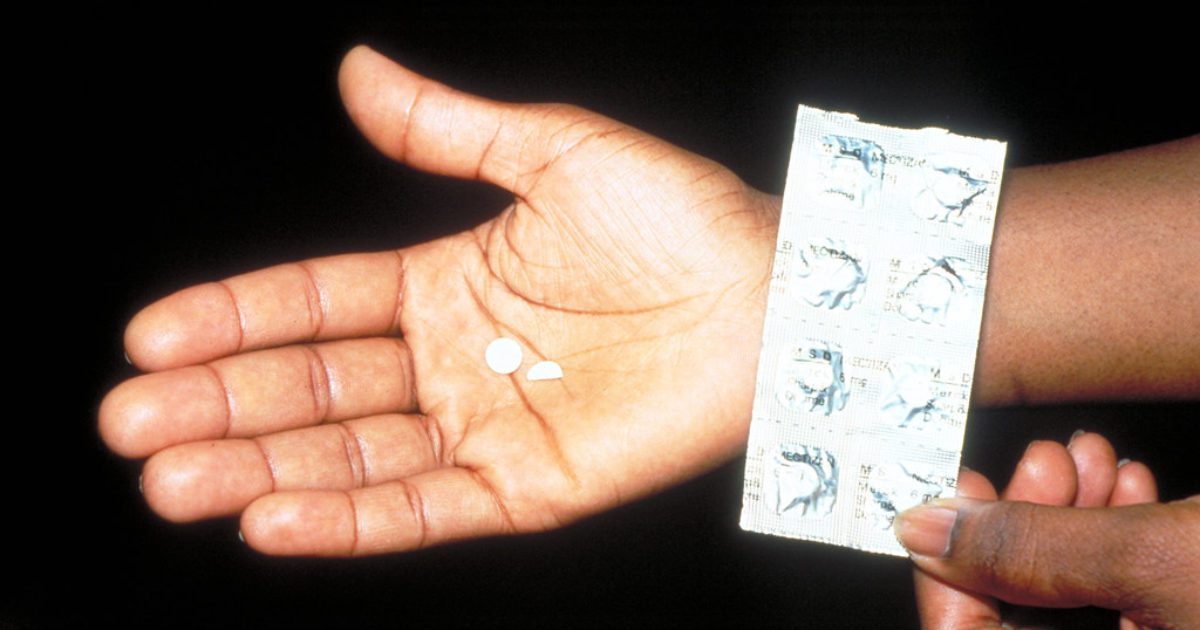Israel is among the most vaccinated countries in the world with the experimental COVID-19 jabs.
Yet, the country faces a new outbreak:
COVID in Israel: Severe cases slightly rise as new restrictions imposed https://t.co/zcvH4iAVWQ
— Haaretz.com (@haaretzcom) August 4, 2021
Israel: protests against renewed Covid restrictions as cases hit highest in months.
The rise in infections is a step back after Israel’s world-leading vaccine campaign.
https://t.co/e6L3UnQfgc— Bright Light News (@BLNewsMedia) August 1, 2021
A recent study from Israel could have the answer to their problems.
However, the medical overlords don’t want this information getting out.
Because Big Pharma cronies want to continue to line their pockets at the expense of innocent lives.
The cheap and effective drug Ivermectin has shown tremendous results at treating COVID-19.
But a vicious smear campaign has kept knowledge of its success from the general public.
A double-blind study from Israel showed similar results of Ivermectin’s success.
Yet, the smear campaign will continue to promote booster shots to the Israeli population.
Here’s more on the study:
A double-blind study shows that ivermectin reduces #COVID19's duration and infectiousness, though the FDA and WHO have cautioned against it. https://t.co/ysyop9uNHR
— The Jerusalem Post (@Jerusalem_Post) August 4, 2021
Top scientist-researcher on ivermectin in Israel. His story here is NOT unique, I have heard the same from quite a few others. Unreal…except its not. https://t.co/ZqP3vezqV0
— Pierre Kory, MD MPA (@PierreKory) August 3, 2021
https://twitter.com/FreedomIsrael_/status/1422313266852810752
Ivermectin Study conducted in Israel as early as 2020 by Prof. Eli Schwartz (Sheba) the study and its results are muted. The drug was banned from prescription there.https://t.co/Fv3NDTCWyZ https://t.co/GGecFRzc0p
— TamiCam (@Kitsune_in_VA) August 1, 2021
Doesn’t make money for politicians and Big Pharma https://t.co/gWRqb8LTDr
— Dustin Penner *Blue Checkmark* (@Dustinpenner25) August 4, 2021
Recent study from Israel. There have been 100+ such studies so far but I still cannot buy IVM at pharmacy.
"…found that only 13% of ivermectin patients were infectious after six days, compared with 50% of the placebo group – almost four times as many."
https://t.co/R4aB72fBkh— Jakub Simek (@jakubsimek) August 4, 2021
A new study by Sheba Medical Center Israel found that Ivermectin can reduce the period of Corona infection! After 6 days 72% of patients were tested negative, with close to 100% chance that within 4-6 days the person will not be infectious.https://t.co/wMUkVGwAaS
— Joseph The Guardian of Israel יוסף שומר ישראל (@Joe10616924) August 3, 2021
https://twitter.com/FreedomIsrael_/status/1421897645124169728
Why do we need a shot when we have this beautiful study coming out of Israel? Ivermectin is the bomb.https://t.co/EASLnzwbeL
— The Best is yet to come… (@nacho_steff) August 4, 2021
From The Jerusalem Post:
Ivermectin, a drug used to fight parasites in third-world countries, could help reduce the length of infection for people who contract coronavirus for less than a $1 a day, according to recent research by Sheba Medical Center in Tel Hashomer.
Prof. Eli Schwartz, founder of the Center for Travel Medicine and Tropical Disease at Sheba, conducted a randomized, controlled, double-blinded trial from May 15, 2020, through the end of January 2021 to evaluate the effectiveness of ivermectin in reducing viral shedding among nonhospitalized patients with mild to moderate COVID-19.Ivermectin has been approved by the US Food and Drug Administration since 1987. The drug’s discoverers were awarded the 2015 Nobel Prize in medicine for its treatment of onchocerciasis, a disease caused by infection with a parasitic roundworm.Over the years, it has been used for other indications, including scabies and head lice. Moreover, in the last decade, several clinical studies have started to show its antiviral activity against viruses ranging from HIV and the flu to Zika and West Nile.
The drug is also extremely economical. A study published in the peer-reviewed American Journal of Therapeutics showed that the cost of ivermectin for other treatments in Bangladesh is around $0.60 to $1.80 for a five-day course. It costs up to $10 a day in Israel, Schwartz said.In Schwartz’s study, some 89 eligible volunteers over the age of 18 who were diagnosed with coronavirus and staying in state-run COVID-19 hotels were divided into two groups: 50% received ivermectin, and 50% received a placebo, according to their weight. They were given the pills for three days in a row, an hour before a meal.The volunteers were tested using a standard nasopharyngeal swab PCR test with the goal of evaluating whether there was a reduction in viral load by the sixth day – the third day after termination of the treatment. They were swabbed every two days.Nearly 72% of volunteers treated with ivermectin tested negative for the virus by day six. In contrast, only 50% of those who received the placebo tested negative.IN ADDITION, the study looked at culture viability, meaning how infectious the patients were, and found that only 13% of ivermectin patients were infectious after six days, compared with 50% of the placebo group – almost four times as many.
“Our study shows first and foremost that ivermectin has antiviral activity,” Schwartz said. “It also shows that there is almost a 100% chance that a person will be noninfectious in four to six days, which could lead to shortening isolation time for these people. This could have a huge economic and social impact.”The study appeared on the MedRxiv health-research sharing site. It has not yet been peer reviewed.Schwartz said other similar studies – though not all of them conducted to the same double-blind and placebo standards as his – also showed a favorable impact of ivermectin treatment.His study did not prove ivermectin was effective as a prophylactic, meaning that it could prevent disease, he cautioned, nor did it show that it reduces the chances of hospitalization. However, other studies have shown such evidence, he added.



Join the conversation!
Please share your thoughts about this article below. We value your opinions, and would love to see you add to the discussion!